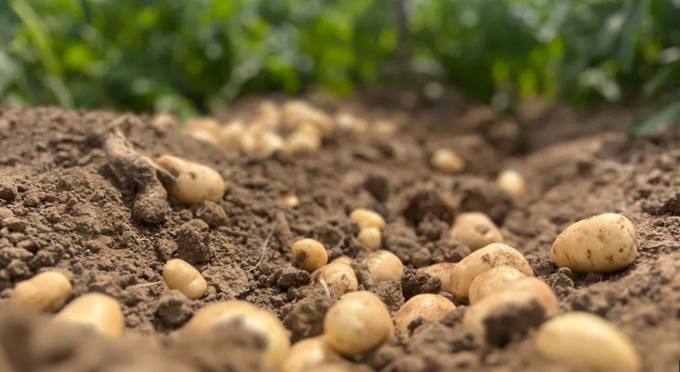November 25, 2025 | 03:48 GMT +7
November 25, 2025 | 03:48 GMT +7
Hotline: 0913.378.918
November 25, 2025 | 03:48 GMT +7
Hotline: 0913.378.918

The environment minister said the discovery of PFAS in sprays was a shock to him and the agricultural industry.
In the States Assembly, Deputy Steve Luce was quizzed on what actions, if any, were being implemented to reduce contamination by sprays containing PFAS in the island's water and environment.
The minister was also asked to provide a timeline for "achieving measurable progress" in addressing the issue.
Luce said his initial discussions with the industry were focused on finding an alternative and stopping the use of such sprays "as soon as possible".
PFAS, used in firefighting foam, leaked into the area by the airport's fire training ground in the early 1990s.
The chemicals, branded forever chemicals because they take a long time to break down, are found in a small quantity in most people's blood, and research is ongoing to determine if higher levels can lead to various health problems.
After the foam was confirmed to be in drinking water in 1993, the island's government and the airport, which it owns, stopped the use of the foam and offered to install new bore holes for affected residents.
People living in the area believe the contaminated water damaged crops and caused a litany of ongoing serious health issues.
The PFAS Scientific Advisory Panel, which makes recommendations, was set up by Public Health in May 2023.
Members met islanders who participated in the blood-testing programme and, in a draft report, recommended therapeutic phlebotomy for those affected.
Therapeutic phlebotomy is a procedure that involves removing some blood from the body to lower the concentration of PFAS.
In September 2024, the advisory panel published a report outlining the impact PFAS exposure had on health.
The panel found exposure to certain PFAS was associated with elevated cholesterol levels, and said there was evidence suggesting a probable increase in kidney and testicular cancers among those exposed to certain PFAS materials.
(BBC)

(VAN) Green transition is crucial for the Mekong Delta amid climate change and stricter standards, offering a path toward sustainability.

(VAN) Dong Thap promotes agricultural restructuring, forms large specialized farming zones, raises the value of agricultural products and develops toward ecological and high-tech directions.
/2025/11/22/4018-4-213342_747.jpg)
(VAN) The Mekong Delta Agricultural Experts Club has attracted 143 experts and researchers to participate in providing consultancy and contributing initiatives to the development of one million hectares of high-quality rice.

(VAN) Ca Mau’s development of OCOP products opens a path to increasing cooperatives value, helping boost income, expand markets, and affirm collective economy's role.

(VAN) Turning seemingly ordinary coconut shells into unique jewelry and artwork, Nguyen Bang Nhi spreads the value of local culture through her brand, Cocohand.

(VAN) Results from the Sustainable Durian Model Project in Dak Lak have confirmed the critical role of Yara Viet Nam in transferring advanced nutritional solutions to farmers.

(VAN) In Tuyen Quang province, livestock farmers have introduced effective models and innovative practices that significantly strengthen African Swine Fever prevention and control efforts.